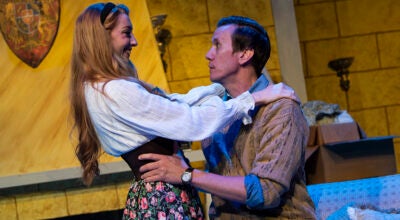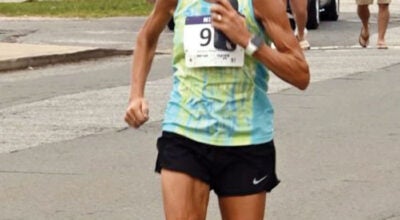Kirby column: When healing doesnít come
Published 12:00 am Friday, September 30, 2011
ěFor I am convinced that neither death, nor life, nor angels, nor rulers, nor things present, nor things to come, nor powers, nor height, nor depth, nor anything else in all creation, will be able to separate us from the love of God in Christ Jesus our Lord.î
ó Romans 8:38-39
I was 20 years old when I was diagnosed with rheumatoid arthritis. The diagnosis was devastating and the prognosis frightening. Rheumatoid arthritis ó the No. 1 crippler of young adults. I feared that the disease would cripple not only my body but my ability to work and my prospects for eventually having the family that I wanted. Well-meaning Christian friends told me that if I had enough faith, God would heal me. But while medication controlled the disease and granted relief from the symptoms, the miraculous healing never happened. For a while I struggled not only with the disease and the fear of what it would do to my life, but also with guilt over not having enough faith to obtain a cure from God.
During my struggle, I read a book called ěLord of the Valleys.î It was written by a woman named Florence Bulle after the death of her husband. Sometimes she heard people say that God was good because their own loved ones were cured of disease. Those claims caused Florence to wonder if that meant that God was not good to her because God let her husband die. Eventually she concluded that the goodness of God was not contingent upon the survival of her husband or anyone else. Her husband died, but God was still good.
Her conclusion enabled me to draw some conclusions of my own. I realized that having faith in the goodness of God did not necessarily mean that I would be cured of my disease. Prayer is not a quid pro quo transaction, divine intervention in exchange for the right human words said with a certain measure of faith. It is not a magic spell we recite to manipulate God into doing what we want. Prayer is a conversation that keeps us in relationship with the one who created us and gave us life. When we pray corporately, prayer is a conversation that keeps us in relationship with each other as well as with our Creator. Prayer is not a guarantee that God will intervene in the circumstances of our lives. Rather, it is an encounter with the living God which in turn changes the perceptions of those who pray.
I love the stories of miraculous healing in the Bible, stories like King Hezekiah, and Jairusí daughter, and the unnamed woman who grabbed Jesusí cloak (2 Kings 20:1-11; Mark 5: 21-43). Those stories encourage us to be honest to God about the health and longevity that we desire. But I relate more to Jacob whose limp was a constant reminder of an encounter with God that left him forever changed (Genesis 32:22-32). I relate more to Paul who, after praying for God to take away his debilitating condition, discovered that Godís grace was sufficient. His weakness made Godís power all the more evident. And that power would give him strength to endure whatever came (2 Corinthians 12: 7b-10).
God created us and gave us life. Sometimes when our lives are hindered or even threatened by disease, we experience a miracle. God heals our bodies and extends our lives. But a lot of the time, maybe even most of the time, we experience the sustaining power of God in spite of lingering illness and disability. And eventually, God lets us die, even those of us who have experienced miraculous healing. But letting us die does not mean that God lets us down. In life and in death, we belong to God. In life and in death, God holds us dear. Nothingóneither disability nor disease nor even deathócan separate us from Godís sustaining love.
Like Jacobís limp, my bent fingers are a constant reminder of my limitations. Like Paulís condition, my disease is permanent. But also, like Paul, I find that Godís power is perfected in my weakness. Godís grace is sufficient for me. I hope that, regardless of what disease or disability you experience, Godís grace is sufficient for you.
The Rev. Dr. Barrie Miller Kirby is pastor of Spencer Presbyterian Church.



